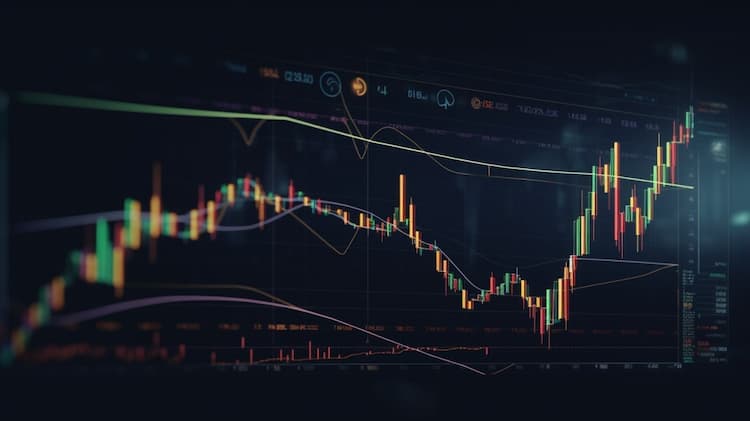
What Is IVV?
IVV, or iShares Core S&P 500 ETF, is a popular investment option that provides exposure to the performance of the S&P 500 Index. As one of the largest and most widely followed stock market indexes, the S&P 500 represents the performance of 500 large-cap U.S. companies from various sectors. IVV allows investors to gain diversified exposure to these companies in a single investment vehicle.
In this article, we will delve into the details of IVV, exploring its key features, potential benefits, and important considerations for investors. Whether you are new to investing or an experienced investor looking to enhance your portfolio, understanding IVV can help you make informed decisions in navigating the stock market.
What is IVV?
IVV, short for iShares Core S&P 500 ETF, is an exchange-traded fund (ETF) that aims to track the performance of the S&P 500 Index. It is one of the popular ETFs for investors seeking exposure to large-cap U.S. stocks. IVV provides a convenient and cost-effective way to invest in a diversified portfolio of companies included in the S&P 500 Index.
IVV ETF FAQ
What are the key features of IVV?
IVV offers investors a range of features that make it a popular choice among ETFs. It provides broad exposure to the U.S. equity market by tracking the performance of the S&P 500 Index. IVV is traded on major stock exchanges, allowing investors to buy and sell shares throughout the trading day. Moreover, IVV has a low expense ratio, making it a cost-effective option for long-term investors.
 IVV overlap What Is IVV?
IVV overlap What Is IVV?
IVV vs. DVY ETF: How do they differ?
What is DVY ETF?
DVY, or the iShares Select Dividend ETF, is another popular ETF that focuses on dividend-paying stocks. While IVV aims to track the performance of the S&P 500 Index, DVY specifically selects and weights stocks based on dividend yield. This difference in investment strategy makes DVY more suitable for income-oriented investors looking for dividend income, whereas IVV is designed to provide broad market exposure.
Why consider IVV over IAU and ITA?
What is IAU?
IAU, or the iShares Gold Trust, is an ETF that seeks to reflect the performance of the price of gold bullion. It is designed for investors who want exposure to the price movements of gold without having to own physical gold. On the other hand, ITA, or the iShares U.S. Aerospace & Defense ETF, provides investors with exposure to the aerospace and defense industry.
While IAU and ITA serve specific investment objectives, IVV offers a broader market exposure to the U.S. equity market as a whole, encompassing a wide range of industries and sectors.
In conclusion, IVV, or iShares Core S&P 500 ETF, is an ETF that tracks the performance of the S&P 500 Index, providing investors with exposure to large-cap U.S. stocks. It offers a cost-effective and convenient way to gain diversified exposure to the U.S. equity market.
Disclaimer: This article is for informational purposes only and does not provide any investment advisory services.
Source 1: IVV issuer website Source 2: Reuters article about IVV
IVV quote and analysis
Discover the top holdings, correlations, and overlaps of ETFs using our visualization tool.
Our app allows you to build and track your portfolio.
To learn more about the IVV iShares Core S&P 500 ETF, access our dedicated page now.
FAQ
What is IVV?
IVV is the ticker symbol for the iShares Core S&P 500 ETF. It represents an exchange-traded fund that aims to track the performance of the S&P 500 Index.
Does IVV pay dividends?
Yes, IVV pays dividends. As an ETF tracking the S&P 500 Index, it collects dividend payments from the underlying stocks in the index and distributes a portion of those payments to IVV investors as dividends.
Is IVV a good investment?
The suitability of IVV as an investment depends on individual investment goals, risk tolerance, and other factors. IVV offers broad exposure to the largest U.S. companies represented in the S&P 500 Index. It can be a suitable long-term investment for investors seeking broad market exposure to U.S. equities.
How often does IVV pay dividends?
IVV typically pays dividends on a quarterly basis. The frequency and amount of dividends can vary depending on the dividends received from the underlying stocks in the S&P 500 Index.
Is IVV a mutual fund?
No, IVV is an exchange-traded fund (ETF), not a mutual fund. ETFs and mutual funds are different investment vehicles with varying structures and characteristics. IVV is traded on stock exchanges like a stock, while mutual funds are bought and sold at the end-of-day net asset value (NAV).





